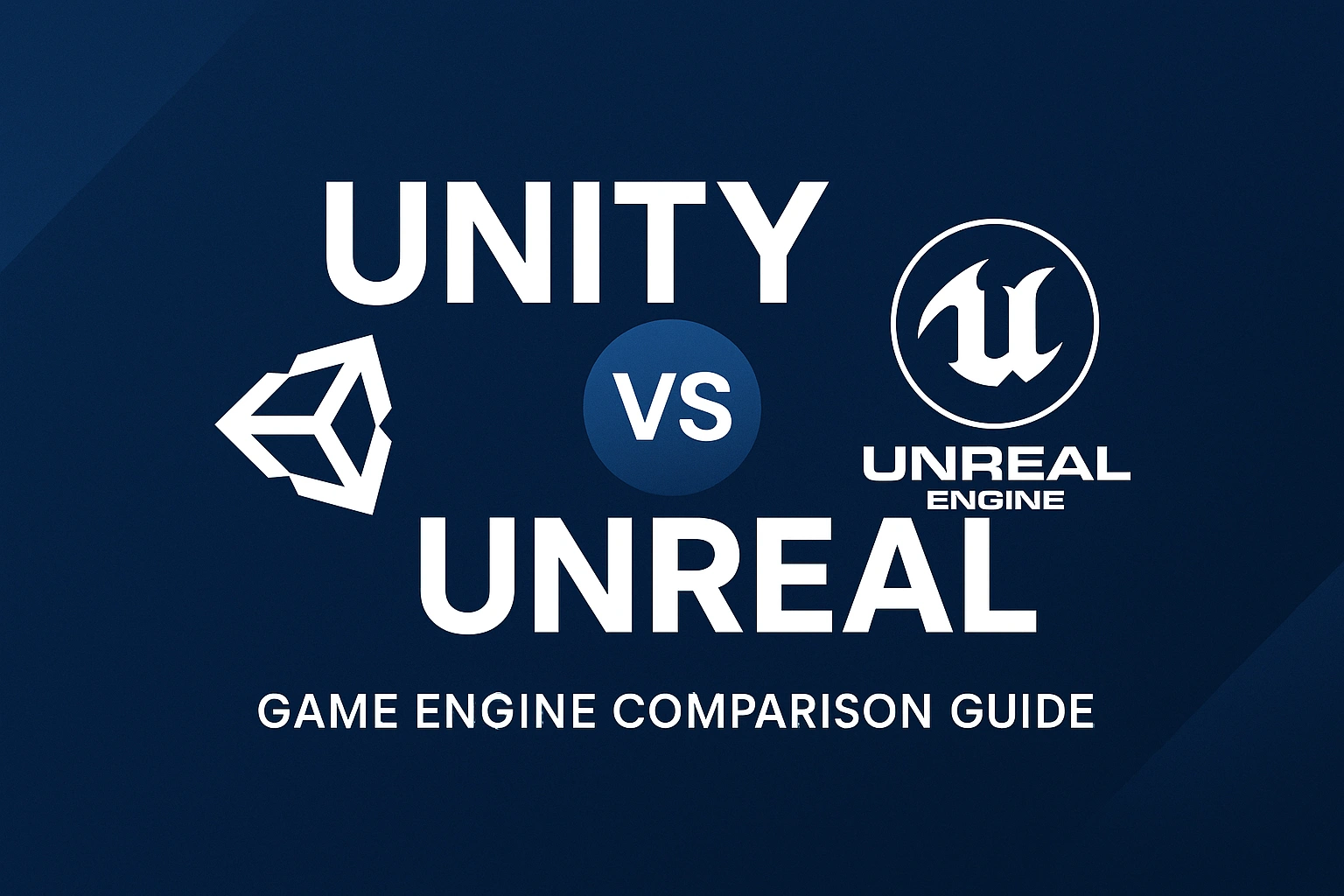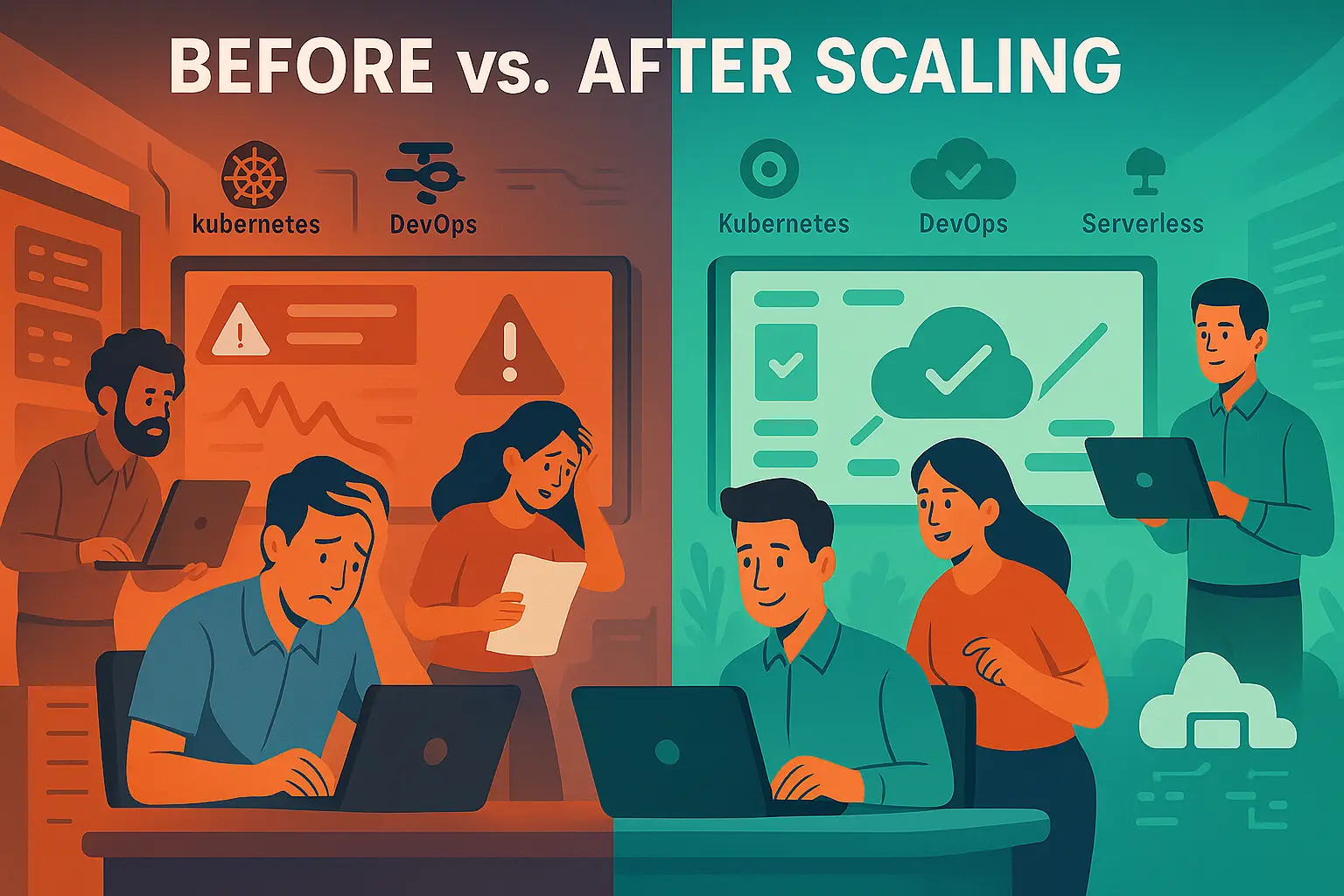Post By

Unity Vs Unreal

Choosing the best game engine in today’s competitive game development environment is more than just a technical decision. It is a strategic move that can influence monetization, speed of development, and the overall success of a project. Unity and Unreal Engine dominate this landscape, powering some of the most iconic games across PC, mobile, console, and VR platforms. Whether you are an independent developer or a large studio, your choice between Unity and Unreal determines performance, visual quality, and scalability. Both engines have powered globally recognized titles and continue to evolve with AI, cloud gaming, and real-time rendering. This blog will break down their differences, compare their strengths and weaknesses, and provide insights that help you make an informed decision for your next project. Unity, released in 2005, is one of the most widely used cross-platform engines, known for its adaptability, extensive asset store, and beginner-friendly environment. It is written in C# and is a preferred choice for mobile, VR/AR, and 2D/3D indie games. Unreal Engine, developed by Epic Games, is renowned for high-end visuals, photorealistic rendering, and advanced simulation capabilities. Built on C++ and supported by Blueprints (visual scripting), it is commonly used for AAA console and PC titles, as well as architectural visualization and cinematic projects. Both engines offer powerful toolsets, but their strengths vary across use cases: The right engine depends on your project’s scope and goals. Unity and Unreal both bring distinct advantages: Choosing between Unity and Unreal requires a clear understanding of your project goals. Experts recommend: Unity dominates mobile gaming with lightweight builds and integrated ad networks, making it the go-to engine for hyper-casual and narrative-driven games. Unreal, however, excels in console and PC titles, where high-end rendering and cinematic depth are required. In VR and AR, Unity leads with its XR toolkit, supporting Oculus, HoloLens, and HTC Vive applications. Unreal shines in metaverse and virtual production projects where realism is paramount. Asset management differs too: Unity’s store caters to indie developers and rapid prototyping, while Unreal’s Quixel Megascans library provides unparalleled detail for cinematic design. Unity and Unreal Engine are both industry-leading platforms, but the right choice depends on project requirements. Unity offers flexibility, faster builds, and mobile-first advantages, while Unreal provides unmatched visual fidelity and AAA-ready frameworks. In 2025, hybrid approaches are also emerging, with studios using Unity for rapid prototyping and Unreal for final production. By aligning engine capabilities with project goals, developers can maximize performance, reduce costs, and deliver immersive experiences across platforms.
Unity and Unreal Engine: An Overview
Core Features and Performance Comparison
Key Benefits of Each Engine
Best Practices and Expert Insights
Industry Applications and Case Examples
Implementation Process for Selecting the Right Engine
Conclusion
Which is better for mobile game development, Unity or Unreal?
Unity is generally better for mobile games because of smaller build sizes, faster iteration, and stronger ad network integration. Unreal can also deploy to mobile but is more resource-intensive.
Which engine delivers superior graphics quality?
Unreal Engine provides cutting-edge visuals with features like Nanite and Lumen, making it ideal for photorealistic games, while Unity focuses on flexibility and performance optimization.
Can a studio use both Unity and Unreal for different projects?
Yes. Many studios use Unity for prototyping or mobile projects and Unreal for high-end console or cinematic productions, depending on project needs.
Which engine is easier for beginners to learn?
Unity is easier for beginners due to its simple interface, C# scripting, and large library of tutorials. Unreal is more complex but offers visual scripting with Blueprints to lower the learning curve.
How do Unity and Unreal differ in pricing models?
Unity follows a subscription-based model with free options for small studios, while Unreal is free to use but charges a 5% royalty after the first $1 million in gross revenue per product.
Which engine provides better multiplayer support?
Unreal has robust built-in networking tools, while Unity often requires third-party SDKs or frameworks for complex multiplayer functionality.
Which industries use Unity and Unreal beyond gaming?
Unity is widely used in education, healthcare, and AR/VR apps, while Unreal is popular in architecture, film production, and simulations due to its photorealistic rendering.
Is Unity better for 2D game development?
Yes. Unity offers excellent tools and support for 2D game creation, making it the preferred engine for indie developers and mobile titles compared to Unreal.
Which engine offers more cross-platform support?
Both engines support deployment across PC, consoles, mobile, web, and VR/AR. Unity tends to be stronger for mobile and wearable devices, while Unreal is optimized for high-end consoles and immersive 3D.
What future trends are shaping Unity and Unreal development?
Both engines are investing in AI-driven asset creation, cloud-native pipelines, 5G multiplayer, and immersive metaverse experiences, ensuring continued relevance in 2025 and beyond.

Discover our other blogs.
Automated QC
Speed, accuracy, and efficiency are critical in the rapidly evolving field of diagnostics and...

Yash Patel
Jul 10, 2025
Scaloy Success Stories
In today’s dynamic corporate environment, embracing the right technology is no longer o...

Ankit Patel
Jun 20, 2025
Scalability
In the ever-accelerating digital era, where speed, resilience, and adaptability are more than...

Vasu Patel
Jun 1, 2025
RPA
In today’s fast-paced business world, speed, precision, and innovation define success. ...

Isabella Rossi
May 10, 2025
IOT Takeover
Imagine receiving care, diagnosis, and monitoring from a network of intelligent medical devic...

Ishita Choudhury
Apr 23, 2025
IOT In Healthcare
The healthcare industry is undergoing a paradigm shift. Rising demands, growing costs, and th...

Noah Fischer
Apr 6, 2025
IOT
In today’s digital-first economy, businesses are under increasing pressure to process m...

Emma Williams
Mar 20, 2025
Digital Transformation
In an era of accelerating change, digital transformation is no longer a choice but a necessit...

Siddharth Nair
Mar 3, 2025
Data Driven Strategies
In today’s hypercompetitive digital economy, data has become more than just information...

Liam Johnson
Feb 17, 2025
Cloud Native Healthcare
The healthcare industry is experiencing rapid digital acceleration. From electronic health re...

Kavya Iyer
Jan 31, 2025











